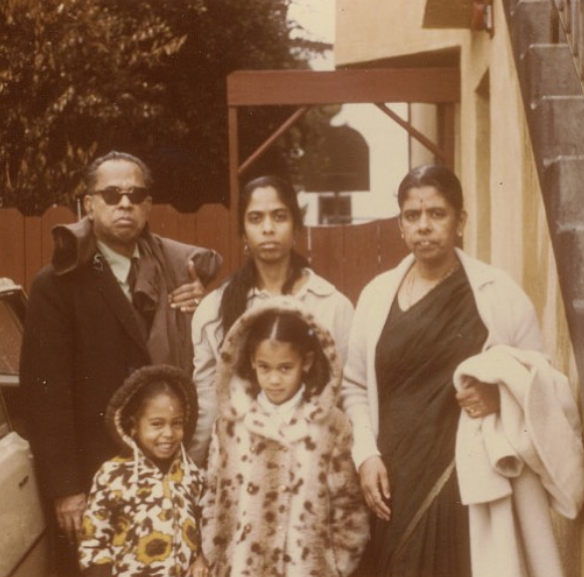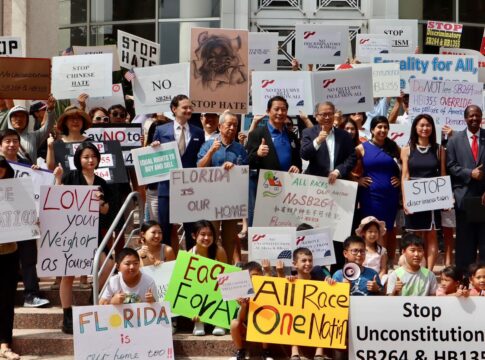By Clifton Yin
I was participating in a virtual event this year in honor of Asian American and Pacific Islander (AAPI) Heritage Month and the subject of racial identity arose. After one attendee mentioned Senator Kamala Harris, another scoffed that “she’s not really Asian, she doesn’t really talk about it.” Since Joe Biden tapped the senator to be his running mate, debate over her racial identity has persisted. “Some of the conversations are like…‘I wish she would be more vocal about being Indian American and Black,” one respondent reported to the Los Angeles Times.
To borrow a favorite phrase from Vice President Biden: what a bunch of malarkey!
Harris doesn’t have to justify her Asian-ness to anyone. And how little or much she chooses to speak out on her racial identity is a wholly personal choice. When asked in a 2009 interview about the politicization of her ethnicity, she said, “I am proud to be who I am, I am proud of the influences that my family have had on my life, that my community had on my life, and similarly the influence of my mentors and colleagues and friends.”
“One is not to the exclusion of the other,” Harris continued. “I believe that point is at the heart of this matter. We have to stop seeing issues and people through a plate-glass window as though we were one-dimensional. Instead, we have to see that most people exist through a prism and they are a sum of many factors.”
LATEST STORIES
Racial identity is undeniably complicated, but it’s certainly not a judgment call to be made by others. It is a fact that Harris was born to an Indian mother and Jamaican father. Since then, she has lived as a biracial citizen in America, and inevitably experienced both the highs and lows that entails. Sadly, I have no doubt that she possesses the shared experience of all Asian Americans in being made to feel foreign in our own country through varying degrees of microaggressions and outright racism.
One annoying example is the insistence in some quarters that her name is “weird” or “different” and that it’s difficult to pronounce. (“My name is pronounced “comma-la,” like the punctuation mark,” the senator wrote in her 2019 autobiography, The Truths We Hold. “It means ‘lotus flower,’ which is a symbol of significance in Indian culture.”) And how did President Trump welcome the historic prospect of Harris possibly becoming America’s first Asian, Black, and female vice president? “I heard it today that she doesn’t meet the requirement,” he sniped, alluding to the racist trope that children of immigrants can’t be president. (She was born in Oakland, California, and is thus unequivocally constitutionally eligible.)
Frankly, it is certain that she has experienced far worse when perceived as a Black woman – a sad reality that her mother anticipated. “She knew that her adopted homeland would see [my sister] Maya and me as Black girls,” Harris noted in The Truths We Hold, “and she was determined to make sure we would grow into confident, proud Black women.”
But this does not make Harris any less Asian. Though it may never be enough for critics, she has been very outspoken about her Indian background and how it has enriched her life. To cite just one notable case, when she accepted the Democratic nomination for vice president, she declared to more than 20 million viewers, “There’s another woman, whose name isn’t known, whose story isn’t shared…my mother — Shyamala Gopalan Harris. She came here from India at age 19 to pursue her dream of curing cancer…And she raised us to know and be proud of our Indian heritage.”
Yet the most important way that Harris demonstrates that she is one of us is by fighting for the Asian American community.
She’s pushed for a Domestic Workers Bill of Rights to protect employees that have long been purposefully excluded from federal labor laws and more than 57% of whom are AAPI, Black, or Hispanic. During the 2020 Democratic presidential primary, she was one of the only candidates to release a detailed AAPI policy plan. Among its many proposals were dismantling language barriers to government services and voting, revising federal data collection to include marginalized ethnicities, defending Dreamers (immigrants who came to the U.S. as children), and creating a $12 billion capital grant and technical support program for AAPI small businesses.
Since then, Harris has introduced a Senate resolution condemning anti-Asian racism prompted by COVID-19 and President Trump’s continued referral to it as the “kung flu,” “Chinese virus,” and the like. She joined several colleagues in calling on both the Department of Justice’s Civil Rights Division and the U.S. Commission on Civil Rights to take tangible action on the recent surge in discrimination against AAPIs. She also appointed Indian American Sabrina Singh as her press secretary on the eve of the convention, indicating a commitment to a presidential administration that reflects the country’s diversity.
When asked in 2019 if she dwells on race, ethnicity, and identity, Harris observed that “when I first ran for office that was one of the things that I struggled with, which is that you are forced through that process to define yourself in a way that you fit neatly into the compartment that other people have created.”
“My point was: I am who I am,” she concluded. “I’m good with it. You might need to figure it out, but I’m fine with it.”
The author, Clifton Yin, is a board member of the Washington, DC, chapter of Taiwanese American Professionals. The views expressed here are his own.
AsAmNews has Asian America in its heart. We’re an all-volunteer effort of dedicated staff and interns. Check out our new Instagram account. Go to our Twitter feed and Facebook page for more content. Please consider interning, joining our staff, or submitting a story.









